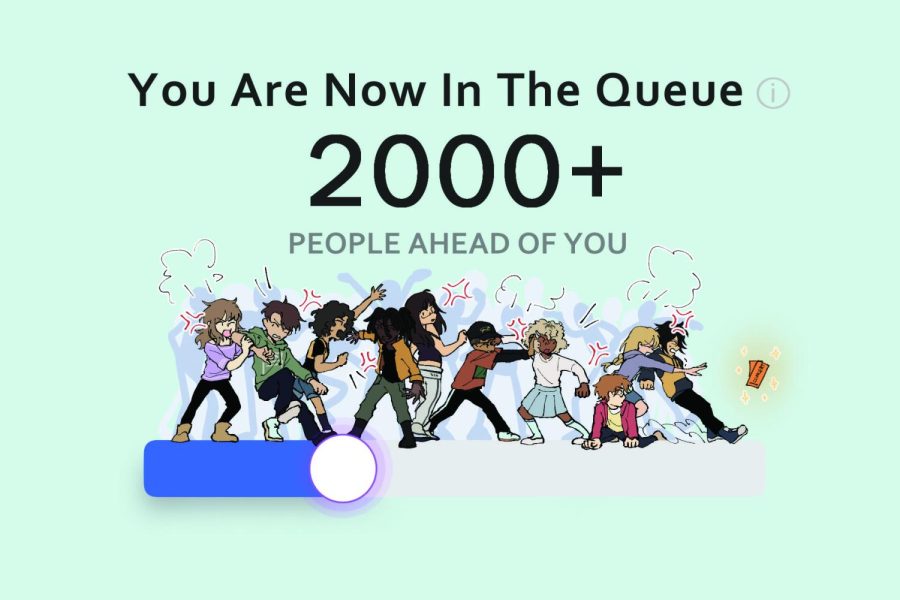Becoming a ticket master
Ticket costs rise due to demand
As thousands of people waited to snag tickets to singer-songwriter Taylor Swift’s “The Eras Tour,” junior Daniela Vidal sat in the back of her math class waiting in Ticketmaster’s online queue. She remained in the queue for three hours, and her friends were depending on her to secure tickets to the concert.
“I ended up not being able to get tickets because my computer wouldn’t connect to Ticketmaster since it was down,” said Vidal. “Ticketmaster did not work for me at all.”
According to Kathleen Bradish, vice president for legal advocacy in the American Antitrust Institute, at least 70 to 80 percent of online ticket sales over the past decade were made through Ticketmaster.
“Ticketmaster has acquired a lot of different companies over the years,” said Bradish. “And … they continue to acquire a lot of smaller companies.”
Online ticket shopping tends to lead to more of a monopoly than the old-fashioned, brick-and-mortar way of getting tickets, Bradish said.
While senior Sonia Thakkar was trying to buy tickets to Swift’s “The Eras Tour,” the tickets sold out before she had the chance to put them in her cart.
“When tickets go on sale, everyone is waiting for [them] to drop, and … there are so many people logged into one website at the same time,” Thakkar said.
Dean Budnick, author of “Ticket Masters: The Rise of the Concert Industry and How the Public Got Scalped,” said in a phone interview that the cost of tickets is determined using dynamic ticket pricing, which is the adjustment of prices based on demand of the ticket.
“The pricing of dynamic tickets fluctuates based on demand for those particular seats,” said Budnick. “It varies based on how many individuals are seeking to purchase a given seat.”
Artists may choose to use dynamic ticket pricing because it can prevent resellers from raising prices and profiting off of a popular show, Budnick said.
Fees are set in a contract between the artist and the ticketing company, and the profits from the fees benefit the ticketing company, Budnick said.
Over the past three years, Vidal has seen a rise in ticket fees.
“For 5 Seconds of Summer, the actual tickets were like $50 and the fees were $22,” said Vidal. “So that’s almost 50 percent of what the actual tickets were.”
According to Budnick, artists tend to release additional tickets, called production kills, closer to the show date if there is more space in the venue.
“[Tour managers] will go into the venue and realize that there is more seating when they’re putting up the staging and the lighting for a given venue,” said Budnick. “And there were some tickets that were not sold at that event that are rereleased.”
For popular artists, there are usually a variety of presales through certain credit cards, the artist’s fan club or even a local radio station, Budnick said.
When buying tickets to singer-songwriter The Weeknd’s tour, Thakkar used a Spotify presale code which allowed her access to tickets before they went on general sale.
“To see music artists that you love perform live is something I really value,” Thakkar said.


